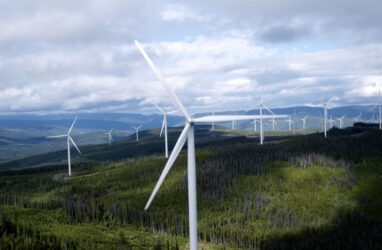Feed aggregator
Fortescue-backed concentrated solar hydrogen tech graduates to pilot phase
The post Fortescue-backed concentrated solar hydrogen tech graduates to pilot phase appeared first on RenewEconomy.
As Moss Landing smoulders, what are the prospects for safer salt batteries?
The post As Moss Landing smoulders, what are the prospects for safer salt batteries? appeared first on RenewEconomy.
US Federal Reserve, four Canadian banks withdraw from net-zero banking alliances
GE Vernova says it has more than 1 GW of orders to repower US wind farms
The post GE Vernova says it has more than 1 GW of orders to repower US wind farms appeared first on RenewEconomy.
The red flowering gum: a perennial favourite and a summer stunner
VCM Report: Prices flatline, but new entrants to market , SBTi growth strike bullish outlook
New REDD carbon methodology to result in “substantial” reductions in credit issuance -ratings agency
INTERVIEW: EU could accept Article 6 credits for CBAM, ETS — if they’re strong enough, says ex-top official
EU prepares measures to save auto industry, with climate in mind
Major e-commerce platform inks two new carbon removal deals
Tanzania to establish clean cooking energy fund linked to carbon trading -media
A hadada: nothing can quite capture the sound of these birds, because it’s mainly just rude noise | Helen Sullivan
These ibises have a special skill called ‘remote touch’, which they use to find their worm, grub and snail prey through vibrations
Hadedas are iridescent grey-brown ibises – jack russell-sized birds with long, curved bills and very small heads – found throughout sub-Saharan Africa.
They have a special skill called “remote touch”, which they use to find their worm, grub and snail prey. At the tip of their bills is an organ that, when they stick it into the soil, can sense the vibrations of their food nearby.
Continue reading...





